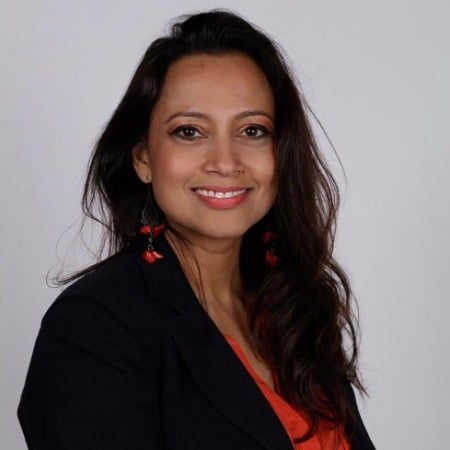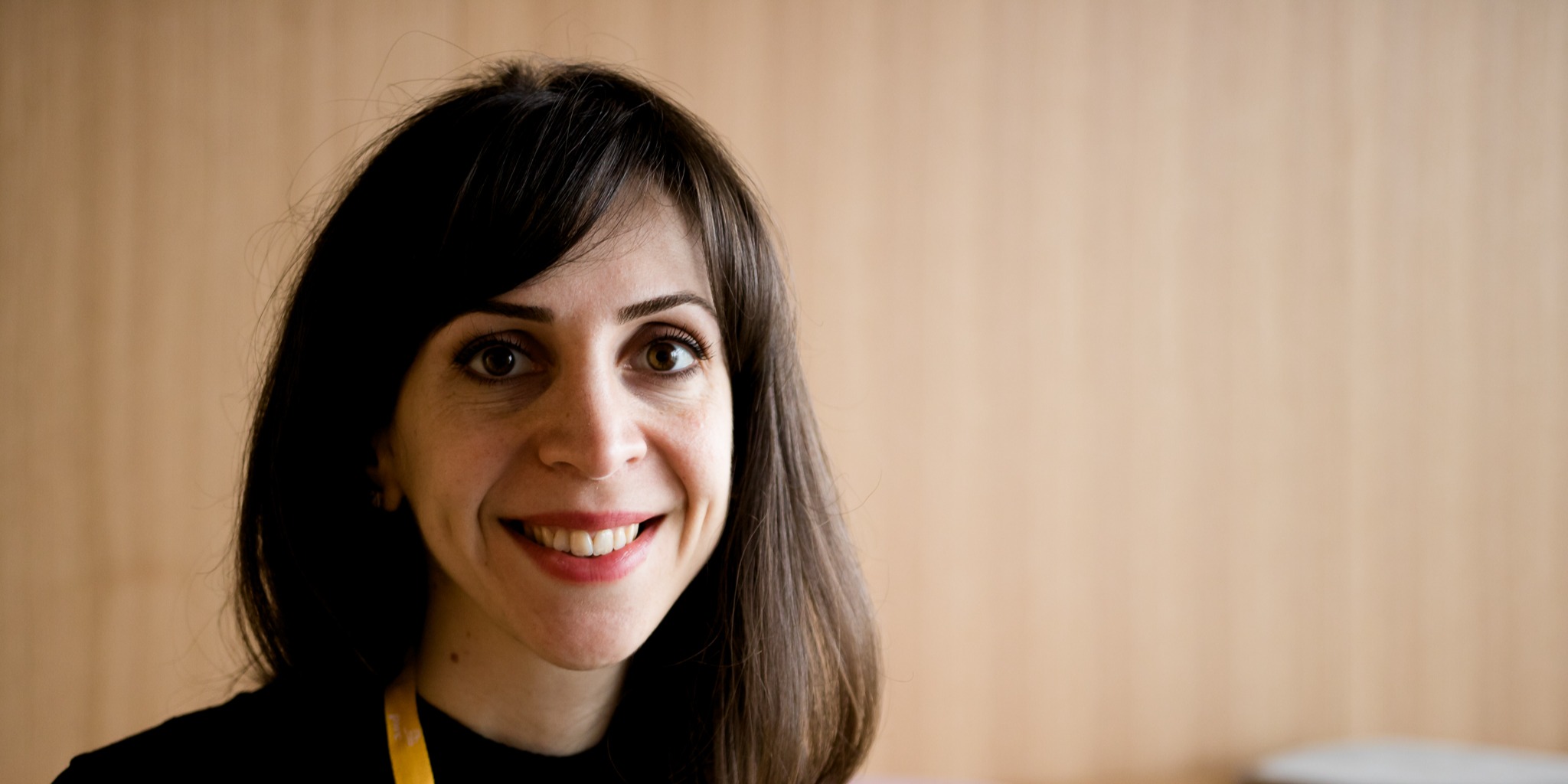Meet Lynn Zoenen, an empowering force in the world of venture capital. As the Principal at Alpine Space Ventures, a space-focused firm with strong female leadership, Lynn plays a pivotal role in cultivating investor relationships and overseeing fund's commercial due diligence. Join us as we explore the strategies employed by VC firms, challenges that women encounter in the investment industry, and much more!
What initially sparked your interest in investing, and how did you get started?
Prior to my venture capital career, I worked for a Japanese space transportation company aiming to expand in European markets. This experience sparked my interest in business development and the operational aspects of space ventures. I quickly became fascinated by the potential of space as a catalyst for growth in non-space industries, which led me to explore venture capital.
To my surprise, I found that few venture capital firms had engineers on their teams. Recognising the importance of assessing development timelines as a fund and having extensive industry experience is crucial, especially in the space industry, , This motivated me to seek a venture capital fund with a specialized team possessing actual expertise and technical knowledge.
Joining the fund provided me with a unique perspective on diverse business approaches, technology development, and market strategies.
Discovering a fund focused exclusively on this burgeoning industry and learning about the team behind it convinced me to join. The team included notable professionals such as Bulent Altan, the former VP A’vionics at SpaceX and former VP Mission Assurance for Starlink. Additionally, Catriona Chambers, the former Director of Avionics for Starship and Hans Koenigsmann, the former Chief engineer further solidified the team's exceptional capabilities. Their involvement and impressive backgrounds greatly attracted my interest.
Joining the fund provided me with a unique perspective on diverse business approaches, technology development, and market strategies. While different from my previous experience, it has been equally exciting and rewarding. Supporting ventures and witnessing their growth has been fulfilling and continues to be so to this day.
What challenges have you faced as a woman in the investment industry, and how have you overcome them?
The lack of women in the investment sector, especially within the space industry, became apparent to me even before becoming an investor. It did every single year attending the IAC, the largest space conference in the world. It was quite disheartening to be one out of very few female participants. You get easily used to the environment and I never made any negative experiences being a female professional in the space industry.
In the fund industry, I have noticed and personally experienced that people often don't expect women to be part of the deal team. During due diligence calls, my colleague Catriona and I have observed people's initial reactions and body language, sometimes with a hint of surprise, when they realize that we are the ones leading the calls. They might assume that we are in support rather than decision-making functions.
I consistently emphasise the value we bring to the table to our partners and startups.
It is interesting to observe these attitudes and reactions as they subconsciously reflect the current state of our society and highlight the ongoing need to challenge societal norms and expectations. However, I firmly believe that this mindset will change. It may take one or two generations, or perhaps just one, but the progress we make today will shape the perceptions of future generations and help overcome gender diversity issues.
In my view, value creation, execution and flexible working hours are critical factors in tackling and surpassing such challenges.
Our portfolio companies and Limited Partners are well aware of the added value we bring to the table. Our industry expertise and first-hand NewSpace experience allow us to ask founders the right questions during our first interactions. As they work with us, they realize that they can leverage our technical expertise and network to develop their technology and build their business faster. Gender really is not a topic when you create value and get things done.
Yet, many women still struggle to combine their careers with their family life. Luxembourg is leading by example when it comes to affordability of daycare. But in many other countries, it is not a given. Another element that helps a lot are flexible working hours. And this also has to do with attitude, trust and leadership. Employers need to ask themselves what type of leaders they want to be.A
What strategies or approaches do you typically employ when analysing potential investment opportunities? Do you factor in the presence of women founders or diverse teams?
In terms of our overall strategy, our primary focus lies in promising technologies related to space-borne connectivity and data that offer tangible benefits to the way we live and work. One example is high-speed satellite internet, which plays a crucial role in supporting advancements in the automotive industry, such as autonomous driving and real-time hazard warnings.
When evaluating potential deals, our main interest lies in supporting technologies that offer a clear path to monetization within the next four to five years and demonstrate a concrete route to enter the market, which should already exist today. If a company informs us that revenues are tied to market education, it immediately becomes less appealing for an investment – in most of the cases.
In the space industry, founders and CEOs are often engineers who have been working on their technologies for extended periods, sometimes up to 10 years. They tend to focus on what is technically feasible rather than aligning closely with market needs, but they need to understand their competitive environment and how they add value to their customers’ businesses, how they address their needs.
As a venture fund, we strongly believe in supporting our portfolio companies in promoting diversity by leading by example […] and by proactively introducing talented women to our portfolio companies.
Additionally, when assessing companies, scalability of the technology is a crucial factor. If a company is for instance heavily reliant on consulting contracts without a clear trajectory for sustainable, scalable growth, we typically choose not to invest.
In terms of diversity, we don't view it as a standalone investment criterion. As a venture fund, we strongly believe in supporting our portfolio companies in promoting diversity by leading by example. We take great pride in our own firm where 60% of the team is female, holding key positions such as Principal, Technical director, and CFO. Furthermore, when making investments, we place significant value on having well-balanced teams. If this balance is not initially present, we proactively take the responsibility of introducing talented women to our portfolio companies.
In your experience, what are the main obstacles that female founders face when seeking funding from venture capitalists, and how can they effectively navigate this process to increase their chances of success in light of the current gender diversity gap?
When it comes to fundraising, being a subject matter expert is crucial. It's important to conduct thorough research, but also keep in mind that building a startup is an ongoing process. No business is ever truly finished.
As a founder, co-founder, or member of the executive team, it's crucial to build a business with individuals who excel in areas where you may not. It's perfectly okay not to be an expert in every domain.
Sometimes, when speaking with female founders, I get the sense that there's a desire to have everything figured out from the very beginning, to have all the answers. But the reality is that startups are filled with uncertainties. However, it's essential to remember that no one has all the answers when it comes to building a business. And that’s okay.
That's why surrounding yourself with a complementary team is so important. As a founder, co-founder, or member of the executive team, it's crucial to build a business with individuals who excel in areas where you may not. It's perfectly okay not to be an expert in every domain. Striving for a picture-perfect scenario is a common struggle, but in reality, that's rarely the case. And that's okay.
Moreover, investors are supposed to support and guide their founders. They serve as mentors, offering assistance not only during the good times but also during the challenging moments. It's like forming a family bond – when we invest, we promise our companies to have their back through the most turbulent times because we believe in them.
What advice would you give to young women interested in pursuing a career in investment? Are there any specific skills or knowledge areas they should focus on?
Firstly, it's important for young women interested in joining the VC industry to gain first-hand startup experience orgain knowledge in the investment field they’re interested in. However, it's crucial to note that subject matter knowledge alone is not sufficient. Developing strong soft skills is equally essential. This includes building a network. You never know when these connections might prove beneficial or when you can add value for them.
Embrace opportunities, continuously expand your knowledge, and cultivate mutually beneficial relationships.
Secondly, it's vital to maintain an open mind about your career path. Venture capital may not have been something you initially envisioned. But the skills you’ve learned and the expertise you have built may lead you there one day. Whether you come from a business background or have expertise in a completely different field, your unique perspective and knowledge can make a difference in a fund.
What matters most is your passion and your willingness to learn and grow within it. Embrace opportunities, continuously expand your knowledge, and cultivate mutually beneficial relationships.
What changes or development would you like to see in the industry in the next few years?
In the space industry, I am excited to see satellite internet and geospatial data drive efficiency across non-space industries. I am excited to see space technology shift from being considered as an individual industry to becoming an important growth driver across the economy.
When it comes to diversity and the ongoing gender discussion, I believe in the importance of challenging societal norms and expectations. However, I also recognise the significance of allowing this progress to occur naturally. It is my hope that in the coming years, we will witness the emergence of numerous space startups and funds led by women. This would be a remarkable step forward for the two industries I’m in.
Stay tuned!
Sign up now and receive the latest news about our ecosystem into your inbox.
You May Also Like
These Related Stories

From corporate finance lawyer to tech CEO: Ruby Pillai

Empowering the next generation: the importance of building a strong tech foundation






